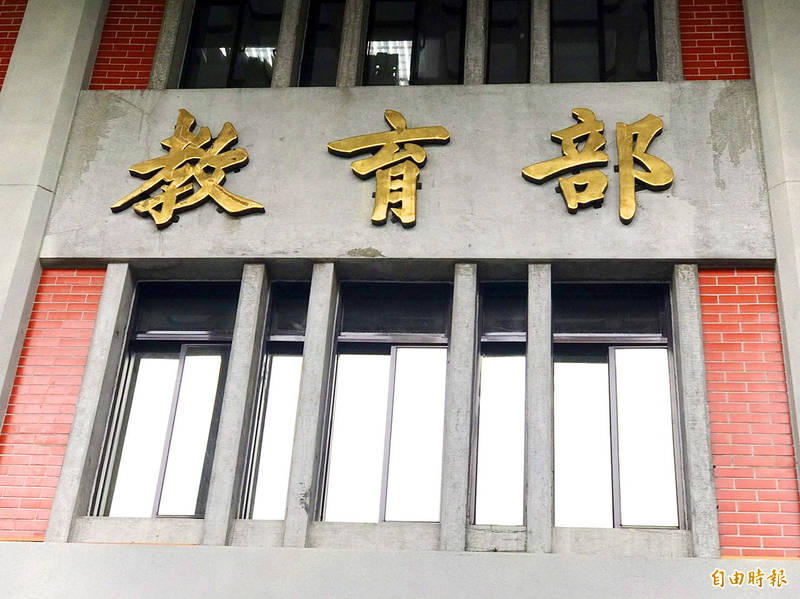《TAIPEI TIMES》 Ministry launches plan to attract overseas students

An entrance to the Ministry of Education in Taipei is pictured in an undated photograph. Photo: Rachel Lin, Taipei Times
INCENTIVE: The program targets overseas Taiwanese and foreigners who know basic Mandarin and English, and participating universities would receive a subsidy of NT$1m
By Rachel Lin and Liu Tzu-hsuan / Staff reporter, with staff writer
In light of the nation’s low birthrate, the Ministry of Education is encouraging public and private universities to launch “special international programs” to attract overseas Taiwanese and foreign students who might not be fluent in Mandarin.
The policy, set to begin in August, aims to enroll 1,000 students specializing in manufacturing, construction, agriculture and long-term care, the ministry said, adding that the government hopes to triple the number of overseas Taiwanese and foreign students from 14,000 at present to 42,000 in 2030.
Only students with A2-level Mandarin are currently allowed to study in Taiwan, with the only exception being the New Southbound International Programs of Industry-Academia Collaboration, which do not require students to be fluent in Mandarin.
Students who enroll in the “special international programs” should know basic Mandarin and English before coming to Taiwan, the ministry said.
After they learn Mandarin for one year and reach A2 level, they can major in four areas — manufacturing, construction, agriculture and long-term care — or take specialty classes that fall under the program, the ministry said.
However, they are required to pass B1-level Mandarin when they are in their second year, it added.
Universities should offer at least 15 hours of Mandarin classes per week and at least 720 hours each year, the ministry said, adding that it would provide participating universities with a NT$1 million (US$34,837) subsidy and offer a grant of NT$50,000 to every student who takes Mandarin classes, it added.
Only universities that have had no issues regarding recruitment in the past three years, and have solid language education and counseling resources can participate, Department of Higher Education Deputy Director-General Chu Chun-chang (朱俊彰) said.
Most university presidents supported the plan, but voiced concern that the incentives offered might not be enough, as the original quota for international students has not yet been filled.
National Sun Yat-sen University president Cheng Ying-yao (鄭英耀) said that learning Mandarin for a year first could help overseas Taiwanese and foreign students do better in their studies.
However, providing quality education is more crucial in drawing international students, Cheng added.
National Chi Nan University president Wuu Dong-sing (武東星) said that Taiwan is a stepping stone for many overseas Taiwanese and foreign students to study, work and live in Europe and the US.
The policy of learning Mandarin for a year is appealing to students who cannot speak fluent Chinese, but the key to retaining talent is offering higher salaries so that they stay in Taiwan to work after they graduate, he said.
Apart from the special programs for international students, which focus on enrolling undergraduate students, there is another route overseas Taiwanese and foreign students can take to study in Taiwan, Chu said.
Departments that focus on key industrial fields, such as intelligent mechanics, biotech, pharmaceuticals, green energy technology, national defense and the circular economy can enroll undergraduate and graduate students, he said.
新聞來源:TAIPEI TIMES















